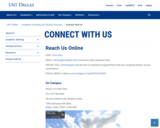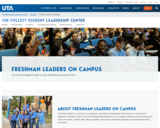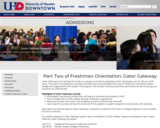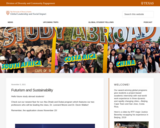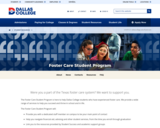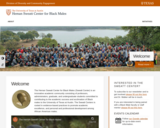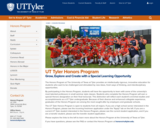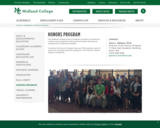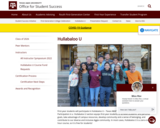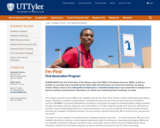
The First Year Institute Seminar’s goal is to teach students “how to be a college student.” We examine factors that underlie learning, success, and personal development in higher education. Topics covered include information processing, memory, strategic learning, self-regulation, goal setting, motivation, educational and career planning, and learning styles. Techniques of study such as time management, listening and note taking, text marking, library, 0and research skills, preparing for examinations, and utilizing learning resources are covered. Includes courses in college orientation and developments of students’ academic skills that apply to all disciplines. All first semester freshmen must enroll in the course during their first semester of college. A final grade of C or higher is required, or the student must repeat the course. Our Learning Framework Capstone is meant to prepare students for transfer and or the workforce. This course includes 1) research and theory in the psychology of learning, cognition, and motivation; 2) factors that impact learning; and 3) application of learning strategies. Theoretical models of strategic learning, cognition, and motivation serve as the conceptual basis for the introduction of college-level student academic strategies. Students use assessment instruments (e.g., learning inventories) to help them identify their own strengths and weaknesses as strategic learners. Students are ultimately expected to integrate and apply the learning skills discussed across their own academic programs and become effective and efficient learners. Students developing these skills should be able to draw continually from the theoretical models they have learned. (Cross listed as PSYC 1100). (NOTE: While traditional study skills courses include some of the same learning strategies, e.g., note-taking, reading, test preparation as learning framework courses, the focus of study skills courses is solely or primarily on skill acquisition. Study skills courses, which are not under-girded by scholarly models of the learning process, are not considered college-level and therefore are distinguishable from Learning Framework courses.) Prerequisite: 30 hours of college-level credit.
DELIVERY FORMAT: The program is in-person only.
PROGRAM SCALE: Medium-scale (reaches between 10 and 25 percent of its target population)
DEPARTMENT(S) OVERSEEING PROGRAM: FYIS-Student Central Learning Frameworks- CAO
CONTACT FOR MORE INFO: Krista Wilson at kwilson@fpctx.edu or 806-457-4200
- Subject:
- Student Success
- Material Type:
- Student Success: Student-facing
- Provider:
- Frank Phillips College
- Author:
- THECB Student Success
- Date Added:
- 09/26/2023
